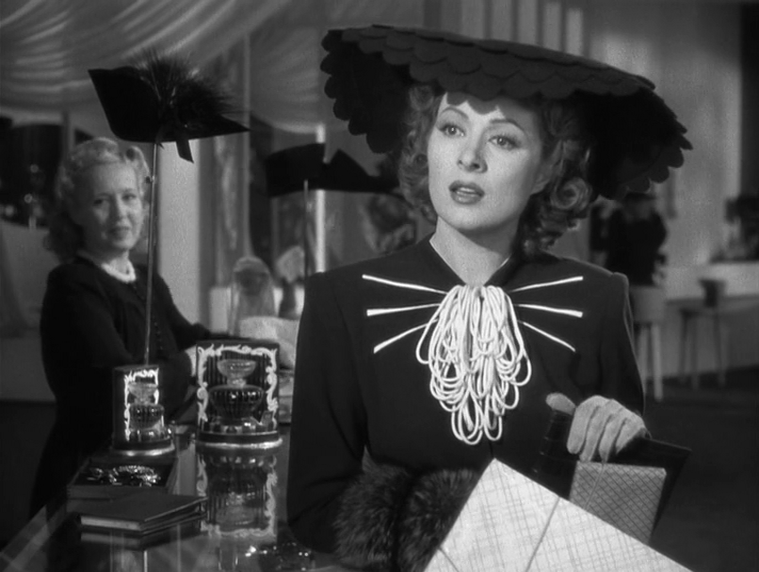Mrs. M
We just had December 7th, so let me announce I finally watched Mrs. Miniver (1942) all the way through. The film was planned before Pearl Harbor, of course, and ended up bringing the war home to America and Britain like few other films. I've seen it in bits and pieces over the years, but never all at once.
I don't know how well-remembered it is today, but it was a big deal back then. I guess it was considered a significant production, coming from MGM and highly-honored director William Wyler. But it ended up being the biggest hit of the year, and was nominated for 12 Academy Awards, winning six, including Best Picture.
It's still a rather small film, about the life of a middle class British family. In fact, the character of Mrs. Miniver was created before the war started. But the film took on added significance since it was made in the early days of World War II and came out just after America had entered. The film turned out to be excellent propaganda (as recognized by Roosevelt and Churchill), showing Americans--who had been neutral when the film was in the planning stages--what the British were going through.
The film establishes Mrs. Miniver, played by Oscar-winning Greer Garson, as a charming woman who spends a little more than she can afford for a nice hat. And her husband, an architect, played by Walter Pidgeon, spends a little more than he can afford on a new car.
I might add though we're told they're middle class, they've got a lovely house in the country with plenty of room and nice furnishings, not to mention servants. (MGM would settle for nothing less.) Anyway, before you know it, there's a war and the carefree days of naughty extravagance are over.
There's a subplot about the war-time romance of the Miniver's son with the granddaughter of the upper class Lady who lives nearby. But most of it is about the privations of war (though, once again, coming from MGM and Wyler, they're still pretty glossy privations).
The main thing about the film is it stays on the home front. The boy goes off to war, but we don't see him fight. Mr. Miniver takes his boat out to Dunkirk, but he's absent from the plot until his return several days later. This allows Mrs. Miniver, in the film's most famous scene, to face a Nazi whose plane was shot down.
Perhaps the best scene, in that it has enough of a Wyler touch not to overdo it, is the Minivers putting their little children to bed, being stiff-upper-lipped and all that, while their shelter is rattled and their house is bombed.
The big speech at the end by the vicar, played by Henry Wilcoxon, was no doubt stirring at the time, but today plays as rather generic, even propagandistic.
The film established Garson as a major star, and made a regular team of Garson and Pidgeon. (It's never explained why he has an American accent. I assume it's because, unlike fellow American actor Teresa Wright, he didn't think he could pull off sounding British. Maybe that's why Wright won an Oscar while Pidgeon was only nominated. On the other hand, Dame May Whitty as the snobby Lady Beldon is probably the best thing in the film and she didn't win either.)
I can't say the film is great, and it's hard to understand why it won so many awards. But obviously it struck a chord at the time, and has to be understood that way. The idea of a war that came to everyone's home was new, and Mrs. Miniver was, to the audience at large, a peek into a world that Americans barely knew (but were beginning to feel) and that the British knew all too well.
It became THE film about how the war affected the home. Wyler would pull off a similar trick in a few years and create THE film about the American home when the war ended, The Best Years Of Our Lives (1946). It was an even bigger hit and won more Oscars than Mrs. Miniver. It's also a better film.




0 Comments:
Post a Comment
<< Home